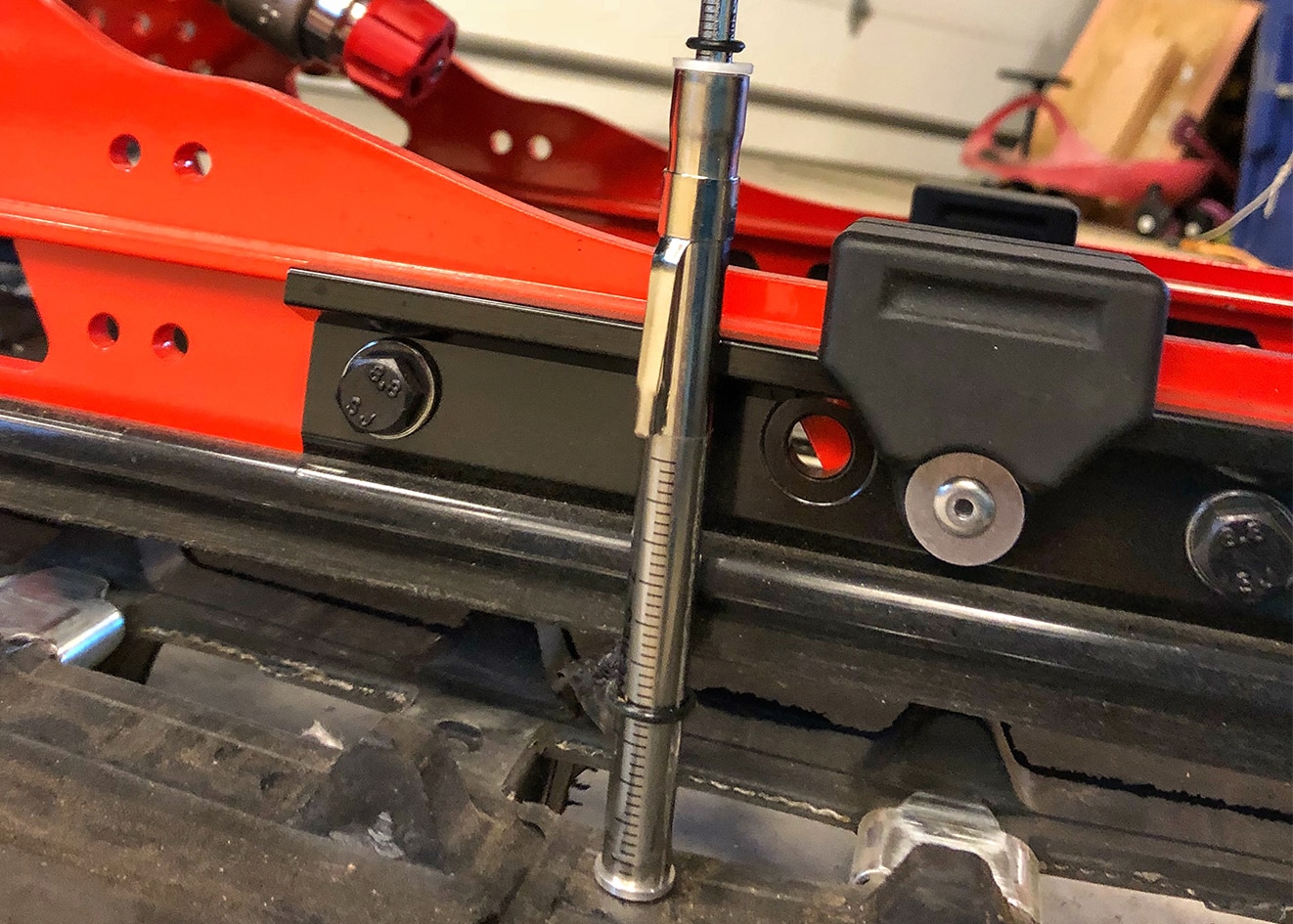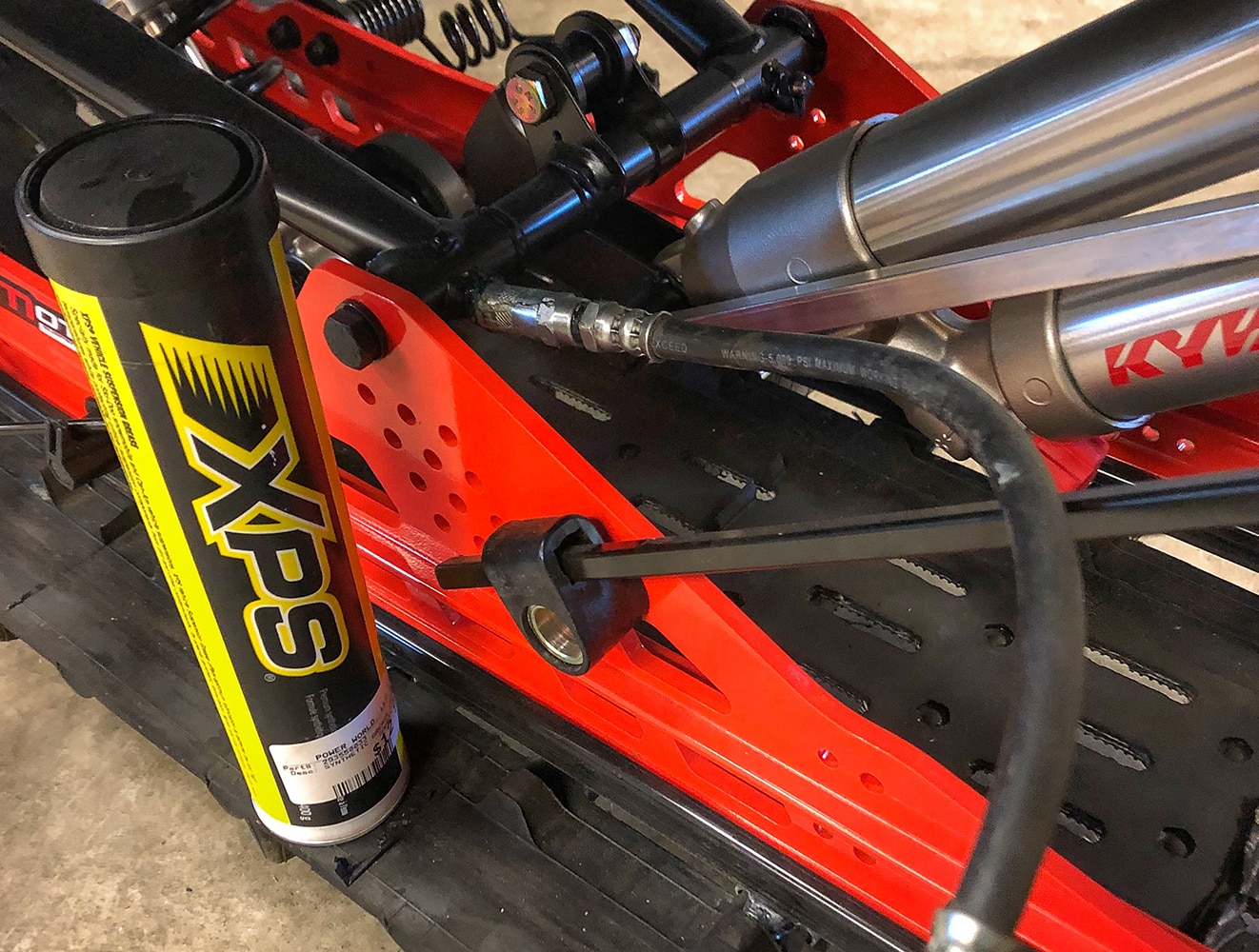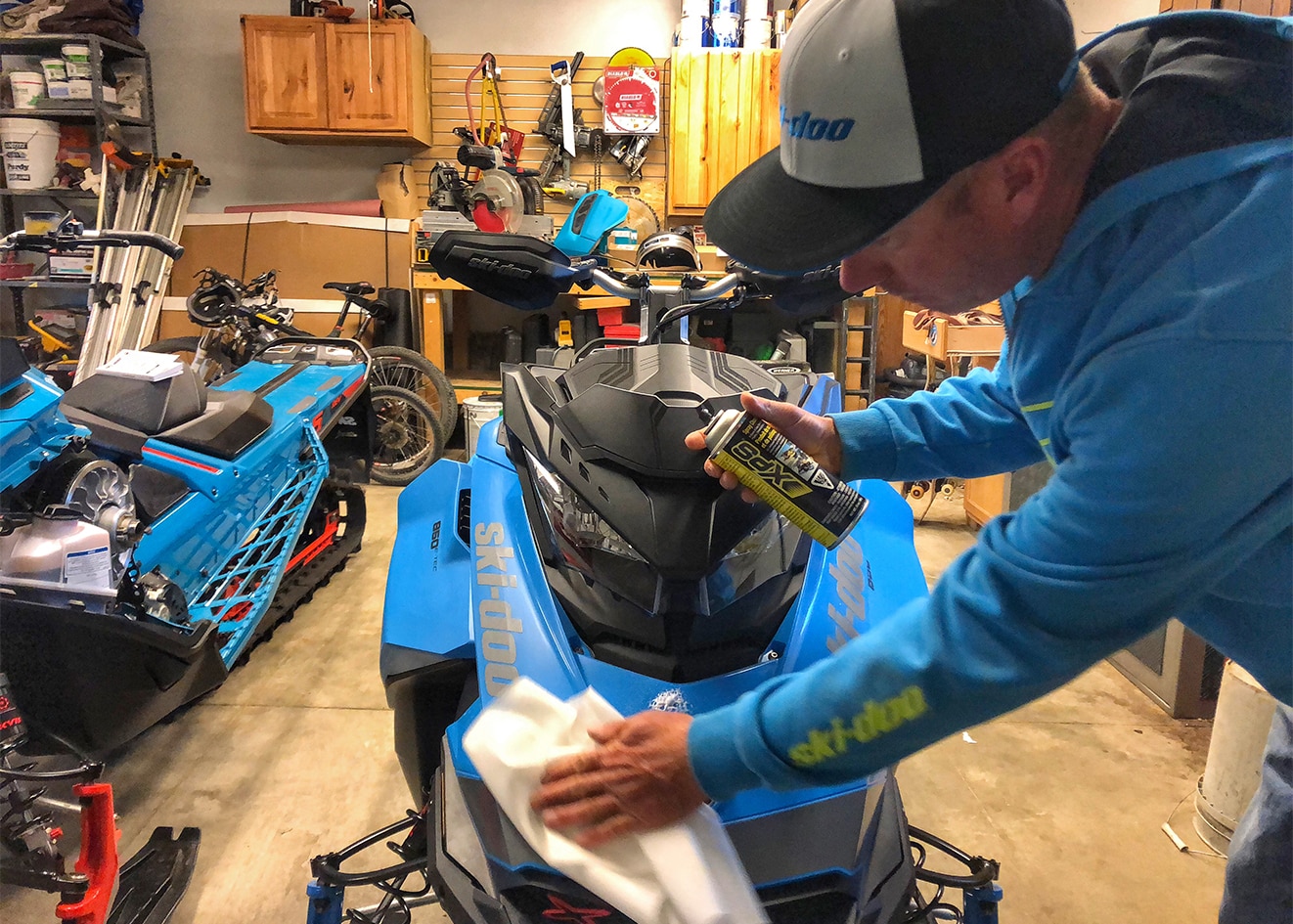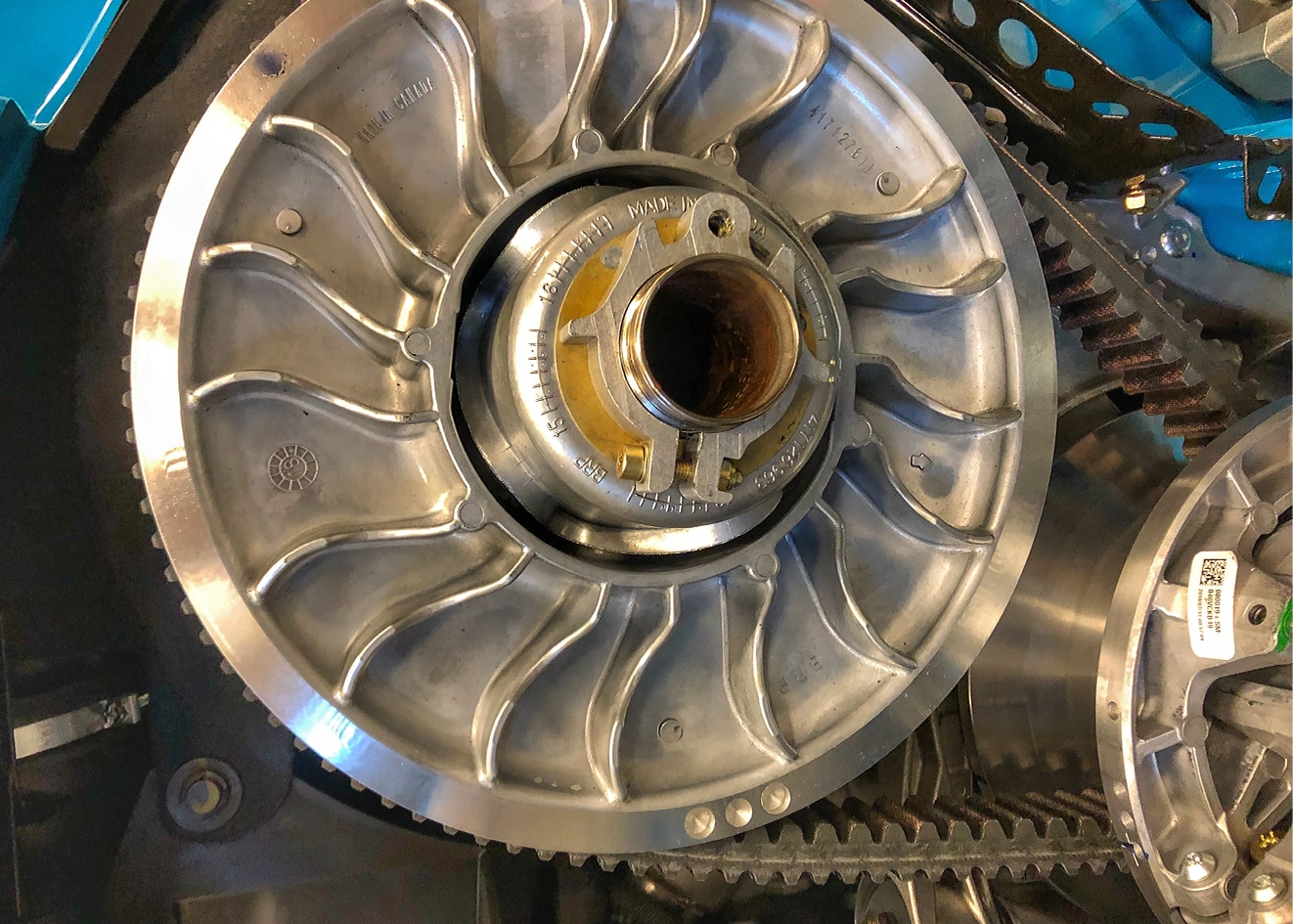Ski-Doo Preseason Checklist
Ski-Doo Preseason Snowmobile Checklist
From Backcountry Expert Jeremy Mercier
Fall is in the air, that means sled season is just around the corner! Check out the Ski-Doo preseason checklist!
1. Inspect and clean Belt and clutches.
I first start by removing the belt cover and giving my clutch a bath of sorts. I start by using compressed air and blow out any belt dust. I then use a scotch bright pad and XPS Parts Cleaner to clean the sheaves. I usually replace the belt at the beginning of the season so I’m starting fresh (you can use the old one as a spare if it’s still in good condition.)
Expert Tip: When installing the new belt or tensioning the existing one be sure to set the lowest portion of the cogs on the external surface of the drive belt even with the driven pully edge. A proper tensioned belt and a clean clutch are key to getting the correct RPM’s out of the engine.
2. Check your battery. Tighten those spark plugs.
This isn’t a biggie for me as my mountain sleds are always equipped with the battery-less Ski-Doo SHOT starter system, but for those of you with electric start, you’ll want to test your battery to make sure it’s holding the proper charge. If not, time to replace.
3. Check track tension.

Elevate the rear of the snowmobile off the ground. You will need a tension gauge (available at most auto parts stores for about $20) to do so. You are looking for 1.25” with 16 lb. of tension in the center of the track. I tend to run my track tighter than looser. So, if it doesn’t meet those specs loosen the rear axle and adjust it to the correct tension. Tighten the rear axle and spin the track a few times to make sure it’s centered.
4. Inspect your track
Check for any tears, missing lugs, etc. If you’ve studded your track, look for any studs that may have pulled out or damaged backers. Now’s the time to replace the track if needed.
5. Check your slider shoes (hyfax).
While you’re down looking at the track, it’s a good time to look at the hyfax as well. There is a wear line that runs the entire length and if it’s even close to being worn out I replace them. Chances are if you are anything like me you’ll be out as soon as it snows on some not so great snow conditions. This step is key otherwise you wear through the hyfax pretty fast and damage your rails. Changing out rails is no fun.
6. Inspect idler wheels and bearings.
Idler wheels and bearings are a quick fix that can prevent a bad day. Replace as needed.
7. Inspect the rear skid.

Make sure there is no damage and the suspension is set to your liking. This is also a good time to hit all the grease zerks with winter-specific grease and inspect for any damage to your shock bodies.
8. Check your carbides.
I was born in the Midwest, so good performance on the trail is not lost on me! A fresh set of ski runners goes a long way to railing those first corners of the season.
9. Check that your riser is in line with the steering post.
Proper riser height and alignment gives the rider the best feedback and handling on the snow. Take the time to make sure all your controls are set to your liking.
10. Check for proper chaincase tension.
This is easy to check. I lock my parking break and wiggle the secondary back and forth. If it moves more than 1/4”-1/2” it’s time to adjust to proper tension. Refer to the manual on how-to. The key is to just tension it enough to take the play out of it. Do not over tighten. Fall is also the perfect time to refresh your chaincase oil if you didn’t do it last spring.
11. Inspect for leaks and top off all fluids.
This one is pretty self-explanatory. Refer to your manual to make sure you check all fluids and top them all off or refresh if needed. Don’t forget to top it off with oil (2-stroke) or change the oil (4-stroke)!
12. Beauty treatment

Lastly, give your baby a little love and polish her up!

